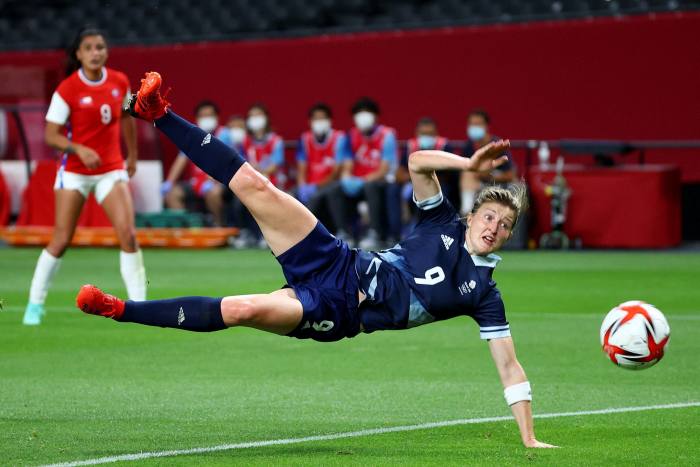[ad_1]
Dozens of self-isolation orders have sparked anxiety among athletes and delegates inside the Tokyo Olympics bubble over concerns they could miss the Games after coming into contact with a Covid-infected person.
Athletes who have come into contact with a person who has tested positive have been told to quarantine and train alone under strict rules. Competitors will still be allowed to participate so long as they continue to pass daily tests.Â
But there is also growing anger over the stricter rules applied to media and other delegates, who have been forced to quarantine for two weeks in cramped hotel rooms under the same circumstances.Â
Just 39 coronavirus infections have been identified among people coming from abroad to the Olympics since the start of the month. Yet the rules mean that many more will face quarantine.
Many inside the Olympics bubble fear being “pinged†— notified by an app designed to track the 79,000 overseas travellers attending the Games that they have been near someone who tested positive.
Such concerns have been exacerbated by the long queues at airports where social distancing has not been observed. Attendees have also been forced to travel between Olympic venues on packed buses and not allowed to use any other form of transport.
“I think the rules are fluid, not properly understood by everyone, and probably not yet thought through,†said Michael Payne, a former marketing director for the International Olympic Committee. “Something has to give.â€
The British team said this week that six of its track and field athletes had been forced into isolation after being identified as coming into close contact with a person who had sat near them on a plane to Tokyo and had tested positive.
Two female beach volleyball players from the Czech Republic were also told to self-isolate, after one their team’s coaches tested positive.
Taylor Campbell, the British hammer thrower, said travelling on commercial airlines had left athletes exposed.Â
“We asked at the [airline] desk to be moved next to other team members on to empty rows but weren’t allowed to change our seat,†he wrote on Twitter. “We have trained hard to get in this position to now risk it all on something out of our control!â€
Inside the Games, a website dedicated to Olympics news, said one of its journalists was being held in mandatory quarantine in his hotel room since last week without any contact from Games organisers, even though he had tested negative in six PCR tests.Â
The entire staff of BBC Scotland have also been forced to self-isolate for 14 days after sitting close to an infected person while travelling to Japan.
Cases are also rising across Japan, with authorities reporting 1,832 new positive infections on Wednesday. A fourth state of emergency was declared in the Tokyo on July 12 and the latest data pushed the moving average in the Japanese capital to well above 1,000, the highest level since January.
Shigeru Omi, the doctor leading Japan’s pandemic response, warned that cases could double by the second week of the Olympics to an all-time peak.
Seiko Hashimoto, president of Tokyo 2020, admitted that public support for the Games was falling. “The playbook that should have reassured everybody hasn’t done that so there is a lot of anxiety,†she said.
But the Japanese government downplayed Omi’s scenario. “Precisely to make sure that doesn’t happen, we considered the risk of rising cases when we declared the state of emergency,†said Katsunobu Kato, chief cabinet secretary.
Japan has vaccinated 35 per cent of its population, leaving a large number of people vulnerable to infection by the fast-spreading Delta variant of the disease.
While the sporting action began with Japan beating Australia 8-1 in softball, it was also confirmed on Wednesday that Brisbane was elected to host the 2032 Games.
The decision followed the introduction of a new bidding system, through which the IOC works closely with a preferred host over several weeks to avoid expensive, competitive auctions.
Weekly newsletter

Scoreboard is the Financial Times’ new must-read weekly briefing on the business of sport, where you’ll find the best analysis of financial issues affecting clubs, franchises, owners, investors and media groups across the global industry. Sign up here.
[ad_2]
Source link







